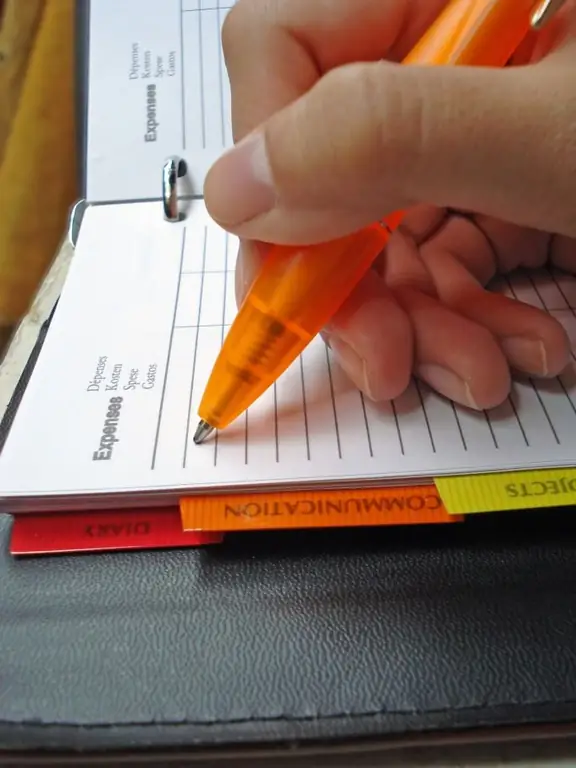In order for the work to be effective, productive and bring satisfaction to both employees and their managers, it is not enough to have a certain amount of professionalism - it is also very important to be able to plan a working day, since the correct organization of working time can help any employee to achieve high results in work without excessive energy consumption.

Instructions
Step 1
Do your work not chaotically, but in an organized manner. Form work blocks and distribute the tasks that you set for yourself for the next working day. Distribute tasks according to their nature, complexity, and other parameters.
Step 2
As you work, don't be interrupted or distracted. If you don't get distracted by trifles, you will complete this or that task much faster and better, so learn not to take short breaks, after which you will have to re-enter the work atmosphere, which takes time.
Step 3
Combine the execution of tasks of a similar nature into one common block and set yourself the task of completing this block in its entirety, and only after that take a short break.
Step 4
In order to complete the block of the most important and responsible tasks, set non-office hours in advance if you communicate with people at work. Establish a certain period of the working day when no one should distract you and no one should talk to you. At this time, the doors of your office should be closed, and you can do important work in silence and loneliness by turning off your phone and the Internet.
Step 5
In the case when negotiations are necessary in the work, plan the rules of the negotiations so that they are as effective as possible with minimum energy consumption. All aspects that need to be discussed should fit within an hour of time - tight timelines will help you avoid lengthy conversations about nothing.
Step 6
Prioritize your work as you get it done. Determine what needs to be done as soon as possible and which tasks can wait. It is impossible to do all the things that lie before you at once, so learn to distribute them according to their importance and urgency. If you manage to complete the most important tasks during the working day, and leave others for later, you will not experience the stress that the day was wasted and urgent work remained undone.
Step 7
Leave certain types of work to your employees and other people, if possible. Use delegation of authority for your own benefit and work productivity.
Step 8
If you have an overly voluminous task in front of you that cannot be completed in one go, divide it into stages and work sequentially. Set the deadlines for the completion of the work for yourself, since only you can know what time frame will be optimal for you.
Step 9
Do your most important work tasks early in the morning so that you feel successful and confident from the first minutes of your day. In addition, it is important to know during which hours of the day you are experiencing an increase in performance, and during which hours you decline. Organize your workday according to these cycles, and during the downturn in the workforce, do not engage in too serious and complex tasks.






